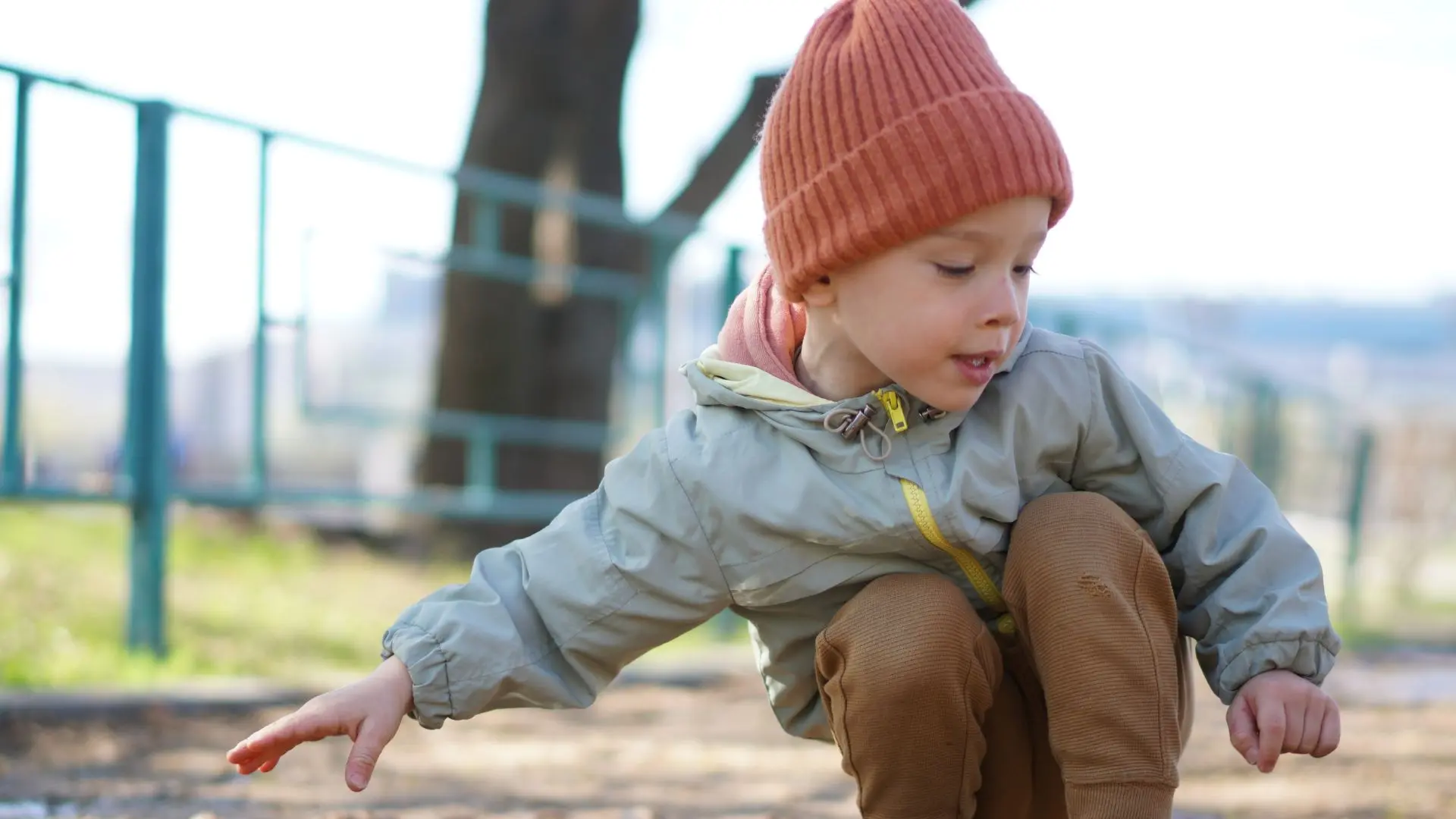What is helicopter parenting? Learn how excessive involvement affects children’s growth and discover strategies for balancing support and independence.

Helicopter parenting refers to a style where parents are overly involved in their child’s life, from academics to social activities. While many parents approach this out of love and concern, there’s a growing critique that such constant involvement can actually hinder a child’s growth.
These parents often believe they are acting in their child’s best interest, trying to shield them from failure and hardships. However, by hovering and intervening too much, they may unintentionally stifle their child’s independence, problem-solving abilities, and resilience—essential traits for navigating adulthood confidently.
In this blog, we’ll explore the nature of helicopter parenting, how it affects children’s development, and the signs to watch for. We’ll also dive into the potential consequences, particularly as kids transition into adulthood, and offer actionable steps for parents looking to strike a healthier balance between involvement and independence.
What Is Helicopter Parenting?
Helicopter parenting refers to a style of parenting where parents are overly focused on their children’s lives, constantly hovering over them like a helicopter. The term was first coined in the 1960s, and it paints a vivid picture of parents who are always nearby, ready to swoop in at the first sign of trouble, failure, or discomfort.
Characteristics of Helicopter Parenting
Parents who engage in helicopter parenting often:
- Oversee every detail of their child’s daily life: From supervising homework to arranging playdates, these parents are deeply involved in all aspects of their children’s routines.
- Intervene in problem-solving: Helicopter parents are quick to step in and resolve conflicts or difficulties their children encounter, whether at school, with friends, or in extracurricular activities.
- Monitor constantly: This can include anything from tracking their child’s location via GPS to excessive communication with teachers and coaches to stay updated on every detail.
- Control decisions: Helicopter parents often make decisions for their children, from what hobbies they should pursue to which colleges they should apply to, without allowing their child’s input.
- Prevent failure: Helicopter parenting is largely driven by the desire to protect children from failure, discomfort, or struggle. Parents in this category see failure as something to avoid rather than an opportunity for growth.
Why Do Some Parents Engage in Helicopter Parenting?
Understanding why helicopter parenting has become so prevalent is key to identifying solutions. In many cases, helicopter parenting arises out of love and concern, but it can also stem from societal pressures, fear, and a desire for control.
Fear of Failure or Harm
One of the primary drivers behind helicopter parenting is a deep fear of failure or harm. Parents may feel that the world is a dangerous place, and by controlling as many variables as possible, they believe they can shield their children from pain, mistakes, or disappointments.
Competitive Environment
Today’s world feels more competitive than ever, with higher educational expectations, the pressure to excel in extracurricular activities, and a perceived need for constant achievement. Helicopter parents believe that by closely managing their children’s activities, they can ensure their future success and prevent them from falling behind.
Social and Peer Pressure
Parents often feel judged by others, whether it’s from family members, other parents, or even society at large. In a world where social media constantly showcases “perfect” parenting moments, there’s pressure to be seen as an engaged, attentive, and successful parent. Helicopter parenting can be a response to this societal expectation of perfection.
The Impact of Helicopter Parenting on Children
While helicopter parenting may come from a place of good intentions, the reality is that this approach can have significant negative consequences for children’s development, both in the short term and as they grow into adults.

Short-term Consequences on Kids
In the short term, children of helicopter parents often experience:
- Reduced independence: When parents constantly step in, children may struggle to develop the ability to think and act for themselves. They may become reliant on their parents to solve problems, make decisions, and manage challenges.
- Lower confidence: If parents are always there to rescue them, children may internalize the belief that they’re incapable of handling things on their own.
- Anxiety and fear of failure: Constant monitoring and intervention can make kids feel that failure is something to be feared. This may result in an unwillingness to take risks, try new things, or engage in tasks where they might not succeed immediately.
Long-term Effects of Helicopter Parenting on Adults
As children grow older, the effects of helicopter parenting on adults can be profound. These individuals often face:
- A lack of resilience: Having been shielded from failure, many young adults raised by helicopter parents struggle to bounce back from challenges, setbacks, or adversity. They may become easily discouraged or overwhelmed by difficulties in their personal or professional lives.
- Poor decision-making skills: Because helicopter parents often make decisions for them, these adults may struggle to make choices confidently. Whether it’s in their career, relationships, or day-to-day life, decision-making can become a source of stress and confusion.
- Increased anxiety: Having been raised in an environment where mistakes were seen as catastrophic, these individuals often suffer from anxiety. They may fear failure or judgment, making it difficult to take risks or trust their own abilities.
- Difficulty in relationships: Helicopter parenting can also affect interpersonal skills. Young adults may struggle to form healthy, independent relationships. They might either become overly dependent on others or resist help, feeling uncomfortable without constant parental support.
7 Signs You Might Be a Helicopter Parent
It can be difficult for parents to recognize when they’ve crossed the line from being involved to being over-involved. Here are seven signs that you might be a helicopter parent:
1. You Frequently Intervene in Your Child’s Conflicts
Do you find yourself stepping in to resolve every disagreement your child has with friends, classmates, or even teachers? Constant intervention might be a sign of helicopter parenting.
2. You Monitor Every Aspect of Their Homework and Grades
If you’re frequently checking your child’s grades online or correcting their homework for them, you could be taking over their academic responsibilities.
3. You Prevent Them from Taking Risks or Making Decisions
Whether it’s deciding which extracurricular activities to join or choosing friends, if you’re the one making the choices, you may be limiting their independence.
4. You Can’t Tolerate Seeing Your Child Fail
Do you step in the moment your child faces a challenge to ensure they don’t fail? Protecting them from any struggle can prevent them from learning valuable lessons.
5. You’re Always in Contact with Their Teachers or Coaches
Frequent communication with teachers or coaches over minor issues may be an indicator that you’re too involved in your child’s affairs.
6. You Over-Schedule Their Lives
If your child’s schedule is packed with activities you’ve chosen for them, without allowing downtime or self-chosen pursuits, it’s a sign of helicopter parenting.
7. You Don’t Trust Their Judgment
Do you often feel the need to double-check or override decisions they’ve made? This lack of trust can undermine their confidence in their abilities.
How to Avoid Helicopter Parenting
While it can be challenging to step back, doing so can help children develop the skills and confidence they need to thrive. Here are some strategies to avoid the pitfalls of helicopter parenting:

Encourage Independence
Let your child choose and be responsible for what they decide. This might mean letting them choose their extracurricular activities or allowing them to manage their homework on their own.
Foster Problem-Solving Skills
Instead of jumping in to fix problems, offer guidance by asking open-ended questions that encourage your child to think critically. For example, if they’re struggling with a friend, ask, “What do you think might help solve this issue?” rather than immediately offering a solution.
Allow for Failure
Understand that failure is a natural part of growth. Letting your child experience setbacks, whether academic or social, will help them develop resilience and perseverance.
Set Healthy Boundaries
It’s important to be involved in your child’s life, but not to the point of over-controlling. Setting boundaries ensures that your child has the space to grow while knowing you’re there for support when needed.
Gradually Give More Responsibility
As your child grows older, gradually hand over more responsibilities. Start with small tasks and build up to larger decisions, allowing them to gain confidence and autonomy.
Teach Time Management
Help your child learn how to manage their time effectively. Instead of micromanaging their schedule, guide them in creating their own routines and learning how to balance school, activities, and free time.
Trust Their Abilities
Trust that your child is capable of handling situations on their own. Step back and give them the opportunity to demonstrate their abilities, even if it means making mistakes.
Promote Risk-Taking
Encourage your child to take age-appropriate risks, such as trying new activities or solving problems on their own. This helps them build courage and learn from their experiences.
Limit Overscheduling
Avoid filling your child’s day with too many activities. Provide them with downtime to explore their interests and figure things out on their own, fostering creativity and self-direction.
Encourage Self-Advocacy
Teach your child how to speak up for themselves, whether it’s with teachers, peers, or in everyday situations. This helps them build confidence in handling their own issues.
Provide Guidance, Not Control
Offer advice when your child faces a challenge, but avoid taking over. Let them weigh options and make their own choices, reinforcing their decision-making skills.
Celebrate Effort, Not Perfection
Focus on praising your child’s efforts rather than the outcomes. Encouraging a growth mindset allows them to appreciate the process of learning and improvement, rather than fearing mistakes.
Encourage Peer Relationships
Let your child navigate social interactions and friendships on their own. This fosters social independence and the ability to handle interpersonal challenges.
Conclusion
Helicopter parenting may stem from a place of love and concern, but its long-term effects on children can be detrimental. By stifling independence, problem-solving skills, and resilience, helicopter parents often hinder their child’s ability to navigate adulthood with confidence.
Recognizing the characteristics of helicopter parenting and understanding the helicopter parenting effects on both children and adults is the first step in finding balance. By fostering independence, allowing for failure, and encouraging problem-solving, parents can support their children’s growth while avoiding the damaging effects of helicopter parenting on adults.
You may also be interested in : Why Do Teens Hate Their Parents? What Can Parents Do?